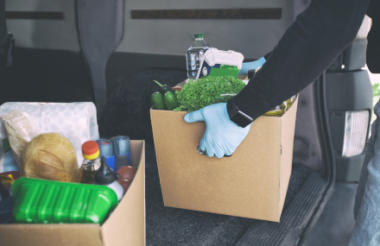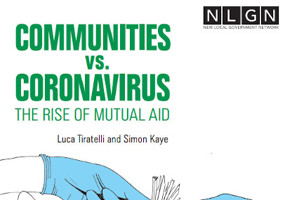Winter will be a “much tougher” environment for charities and volunteers responding to the pandemic crisis, the chief executive of Volunteering Matters has warned.
Paul Reddish was speaking at the Westminster Social Policy Forum about priorities for encouraging volunteering and the role volunteers had played in the response to Covid-19.
Reddish said there is “a tough winter coming up” as “this crisis is far from over yet”.
“We are entering into winter in much tougher conditions in our ability to respond, both from a volunteering and a sector point of view,” he explained.
He added: “We should not assume that what happened in March can happen again this winter, things will be different.”
Sector under strain
One of the reasons things will be different is because of strain the sector has been under over the past few months.
“There are some learnings that will mean we are better in our response, but there are also some real challenges,” he said.
For example, he said: “There are some real questions around what services are going to be provided by local authorities that are not strictly part of their statutory duties.”
“What strain is that going to put on the sector, at a time when the sector is already strained and the resources are depleted, and everybody is fatigued,” he questioned.
Coupled with the fact “there is a fatigue in the mutual aid and community activism” shown by the decline in numbers in a lot of groups.
Innovation and collaboration
He said the surge of innovation and collaboration “are the real strong points” which have arisen as a result of Covid-19 so far.
Reddish said the strength of collaboration in the Covid-19 response has been crucial, and “those relationships that have formed mean that even though we are going into a winter full of headwinds. we are able to work with each other to respond”.
“I very much hope this sense of collaboration and spirit that has happened in the sector continues, because we are going to need it,” he said.
Surge in volunteering was a political and public mindset
Reddish also spoke about the so-called “surge of volunteers”.
He said: “What new volunteers? As yet, we have not fully understood precisely what has happened during Covid-19.”
There were unique conditions in the first lockdown, so “it is not that simple to judge in the context of what that means for the long term”.
He warned against making “bold claims too early” and said research was needed.
Nonetheless, he said: “I think there has been a huge interest in volunteering that was not there before, but it is a political and public mindset one, and that is different from there being a causal link to many more people volunteering.”
Mutual aid groups
Reddish also discussed the rise of mutual aid groups.
“This is something that I feel has been slightly over simplified,” he said.
“Mutual aid is a concept. It is the idea that two individuals might support each other at a time of need. The group bit is the bit that we have tagged on, and actually they are all very different,” he explained.
That is, they can be anything from a Whatsapp group to a repurposed sports club.
Mutual aid groups “are not one homogenous group” and “the answer around what happens next is going to be different” depending on the community.
Yet he said “there are some things that clearly we have learnt and continue to learn.”
Before the pandemic, participation in formal volunteering is higher amongst young people, but they volunteer much less, so “the landscape around who volunteers and how has been shifting for some time”.
“Covid-19 has somewhat amplified that because a number of people have been shielding”. For example, the Charity Retail Association has been working with the NCS to try and recruit 10,000 new young people to volunteer to “meet that gap in need”.
“We are having to change our approaches and adapt our volunteering practices to reflect that,” he said.
Reddish also said “There are also some clues from the last recession in 2008. There was a huge increase in volunteering as we hit the recession because more people were unemployed and volunteering was seen as a route to increase time, and I think we will see the same again as this crisis unfolds.”
That will mean the sector must watch out for “the darker sides” around “the potential exploitation of volunteers”.












